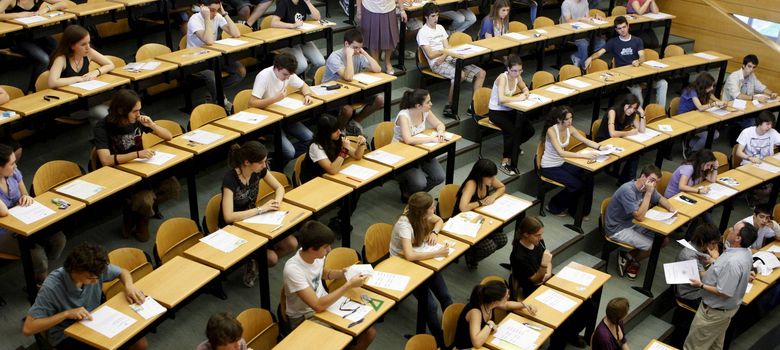 Call for chapter submissions for a new book, entitled:
Call for chapter submissions for a new book, entitled:
Theorising the university: critical perspectives on institutional research
Edited by Mark Murphy, Ciaran Burke, Cristina Costa and Rille Raaper
Book overview
The purpose of the proposed text is to bring together a set of state-of-the-art case studies that bridge social theory and methodology in analyses of the university. Research on the university has long been influenced by conceptual approaches borrowed from the field of social theory, and has also at times been its key focus (see Bourdieu’s Homo academicus and Lyotard’s The post-modern condition for examples). As editors of this collection we wish to build on this relationship between social theory and the university, and bring together critical interdisciplinary perspectives on university life that help illuminate the significance of social-theoretical concepts in innovative forms of research design. The book will offer the reader a range of theoretical perspectives and methodological approaches to assist them in better understanding and engaging with the university as an object of critical inquiry. Specifically the book will include a range of case studies under the following headings: Pedagogy, curriculum, assessment; governance and management; identities; and inequalities.
Details:
The editors are keen to encourage proposals that reflect one of the following key areas of university research:
Pedagogy, curriculum, assessment: this section covers the main activities related to university teaching and professional practice. Examples of research in this area could include: testing and its effects on teaching and learning, knowledge, power and curriculum design (e.g., decolonisation of curriculum), critical pedagogy, approaches to doctoral supervision, technology-enhanced learning, the development of teaching practice, debates around trigger warnings, lecture capture etc.
Governance and management: this section will examine university governance in relation to issues such as: regulation and accountability, marketisation, consumerism and privatisation, internationalisation, performativity and audit cultures, funding and forms of provision. Contributions are encouraged to engage critically with the literature on issues such as the governance turn, the regulatory state, bureaucratisation and neo-liberalism.
Identities: chapter contributions to this section can focus on different types of identity prevalent in the university, including professional, academic and student identities. Chapter proposals can relate the study of identities to emergent phenomena such as the casualisation of academic work, the rise of consumerist culture, and the changing nature of student protest, (e.g., Fallist movement in South Africa, Movimiento Estudiantil in Venezuela). Research questions could include: how are learner identities formed and transformed in the university? What factors impact on notions of professionalism? How has digital culture helped shape academic identity?
Inequalities: This section had a broad scope and can included contributions that focus on any of the following: access and participation, admission policies, inclusion and the student experience, race, class, gender, disability, special educational needs, family background and parental involvement. We encourage submissions that apply social theory in studies of inequality, including research influenced by the works of Antonio Gramsci, Martha Nussbaum, Nancy Fraser, Arjun Appadurai, Pierre Bourdieu, etc.
When preparing your submission it is strongly recommended that your make yourself familiar with the remit of the book series Social Theory and Methodology in Education Research. It is expected that contributors will situate their analysis in the context of key debates in social theory regarding themes such as knowledge, language, culture, the body, self and identity, the state, economy and social justice. We especially welcome contributions that examine the relevance of key theoretical concepts such as subjectivation, hegemony, habitus, recognition and assemblage, as well as papers that aim to hybridise concepts from different theoretical traditions. Alongside this we aim to incorporate a strong international dimension in the collection, with a wide variety of local and global contexts to the fore. We are keen to read submissions with a strong empirical focus, however we will in some cases consider ‘pure’ conceptual papers if they provide a strong fit with the remit of the book.
Proposals
Proposals for chapter contributions, in the form of a 400 word abstract, are requested (deadline: December 01, 2018). The chapter abstract must clearly describe:
- The area of research (as outlined above) as well as the specific research question/purpose. Please note that these four categories are not mutually exclusive – there is some degree of overlap between them. But please indicate in your submission which is your core focus;
- The social theory and/or theorist drawn upon for the research design, method, and/or analysis (including, but not limited to, the work of Judith Butler, Pierre Bourdieu, Michel Foucault, Jacques Derrida, Julia Kristeva, Nancy Fraser, Jürgen Habermas, Axel Honneth, Gilles Deleuze, etc. Please note that these are modern examples but we also welcome submissions engaging with thinkers such as W.E.B Du Bois, Max Weber, etc);
- Explicit connections between theory and research practice that could offer innovative/unique ways of thinking about social theory-informed methodologies and analyses in university research.
Chapter abstracts should be submitted, in Word format, to Dr. Mark Murphy (mark.murphy.2@glasgow.ac.uk – note the .2). Abstracts received by December 01, 2018 will be reviewed by the editors and authors notified of review results no later than February 1st 2019. Authors invited to submit full chapters (up to 8,000 words) will have until August 1st 2019 for their submission, which will be followed by a peer-review process. Publication of the book is planned for June 2020.
The full book manuscript will be submitted to the Bloomsbury book series entitled Social Theory and Methodology in Education Research (Series Editor: Mark Murphy, University of Glasgow). This series provides a collection of books exploring various applications of social theory in educational research design and providing a detailed account of how theory and method influence each other in specific educational research settings (such as schools, early years, community education, further education colleges and universities). The series represents the richness of topics explored in theory-driven education research, including leadership and governance, equity, teacher education, assessment, curriculum and policy studies.



